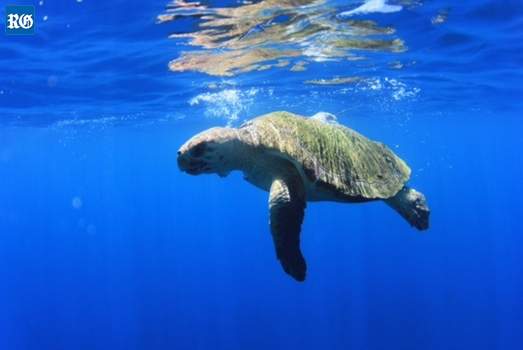Recent News
You can help with reef surveyWednesday, June 18, 2014
Budding environmentalists are again being urged to volunteer to help monitor the health of Bermuda’s reef systems.
Citizen scientists invited to participate in Reef Watch
Wednesday, June 18, 2014
Islanders are being invited to become citizen scientists while helping to protect Bermuda’s reef system at the second annual Reef Watch event.
Plans Gear Up As Reef Watch 2014 Approaches
Tuesday, June 17, 2014
Reef Watch 2014 is scheduled for Saturday, June 28th and members of the community are invited to become Citizen Scientists and participate in an island-wide effort to help monitor the health of Bermuda’s reef systems.
Staff and volunteers praised for their work
Wednesday, June 11, 2014
The volunteers, staff and organisations that helped to make Bermuda’s celebration of World Oceans Day a success are being praised for their “amazing work”.
Charities benefit from $303,640 raised by Catlin End-to-End
Wednesday, June 11, 2014
The Catlin End-to-End Walk raised more than $300,000 for a host of local charities.
About
GovernanceAbout Us
Newsletter
Latest News
Gift & Bookstore
Contact
General Inquiries
info@bzs.bm
Latest News
All the latest updates and news from the Bermuda Aquarium, Museum, and Zoo, one of Bermuda's leading visitor attractions!
Owain Johnston-Barnes
Published May 15, 2017 at 12:01 am (Updated May 15, 2017 at 7:03 am)

The relocation of turtles for the America’s Cup presents a host of ethical dilemmas, according to environmentalist Stuart Hayward.
According to the Bermuda Government, temporarily moving turtles from the Great Sound to an ocean enclosure will protect them from marine traffic.
However, Mr Hayward, founder of the Bermuda Environmental Sustainability Taskforce, voiced concerns that human intervention in the environment has frequently led to unexpected consequences.
“As examples, the introduction of cane toads, anolis lizards, cannibal snails, kiskadees, casuarinas, Chinese fan palms, to name a few, have shown that Bermuda’s humans still have much to learn about the interconnectedness of the island’s lifeforms and, indeed, life on our planet Earth,” he said in a statement.
“The planned temporary relocating of turtles — certainly with the turtles’ interest at heart — from the America’s Cup main racecourse, poses a number of environmental and ethical dilemmas. There are difficult choices.
“Do nothing and risk danger to turtles in the area. If a turtle is struck, risk adverse publicity locally and internationally; lose credibility as environmental stewards.
“Or do something and risk doing too much or too little or the wrong thing; risk adverse effects on turtle health due to stresses from being moved, penned, mal-fed and/or injured.”
Mr Hayward said the proposal also raised wider concerns about people acting like the land and sea belong only to them.
“If AC or other ongoing inshore sail or motor racing activity is to take place beyond this year, the turtles will have to be moved permanently, or sacrificed,” he said.
“Such racing and on-water activities have been taking place and multiplying for decades. However, it has taken the ‘intense’ America’s Cup activity to make us look at wildlife mitigation. Piecemeal actions and legislations have happened in the past, such as the fish pot ban, protection of cedars, fishing restrictions.
“What is needed is a holistic land, air and marine environmental plan. The AC is huge, bringing with it a locally yet-to-be-experienced concentration of human and boating activity. Our lack of facilities, legislation and the will to do the right thing with managing marine debris, pump out stations, fuelling stations and more show that we are behind the 8-ball compared to other, often less-affluent countries.”
Mr Hayward said Bermuda must learn from its experiences hosting the America’s Cup, adding that the island needs to revisit the issues of carrying capacity — just how many people can sustainable life on the island — and the balance between convenience and the environment.
He added: “We cannot move sea turtles or any other feral marine life permanently. It is not our right to do so, even if we had the ability. We must implement forward planning, wide consultations, and sustainable management and legislative practices such that decisions are not made ad hoc or by event.
“Then we must have the strength to enforce and stand by our believed and written best practices. The demise in the end may just be our own if we don’t.”
Greenrock has previously raised concerns about the potential impact on turtles’ health and stress. The Government argues that the risks to the turtles resulting from collision with AC boats outweighs the risks associated with a temporary holding period.


